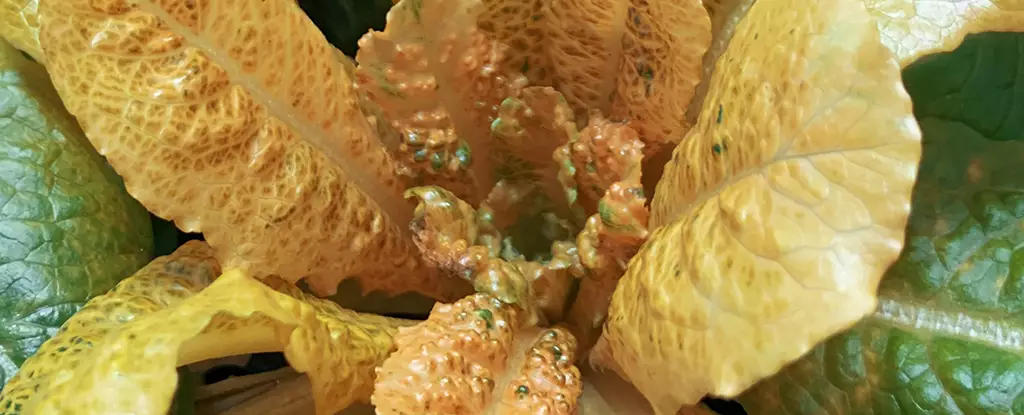In a remarkable advancement in agricultural biotechnology, scientists have unveiled a genetically modified variant of lettuce, coined ‘golden lettuce,’ which boasts significantly elevated levels of vitamin A. This nutrient is crucial for maintaining a robust immune system, supporting vision, and facilitating growth and development. Beyond its immediate benefits, this pioneering approach in modifying one of the world’s staple vegetables raises a promising potential for enhancing the nutrient profiles of various other crops in the agricultural biosphere. The initiative, spearheaded by researchers from Valencia Polytechnic University (UPV) in Spain, signifies a revolutionary leap towards addressing global nutritional deficiencies.
The team set out to increase the presence of beta-carotene—an orange-red pigment that is a precursor to vitamin A—within lettuce (Lactuca sativa). In a preliminary phase, the researchers successfully elevated beta-carotene levels five-fold in *Nicotiana benthamiana*, a tobacco relative. However, modifying lettuce, a more complex organism, presented challenges that required innovative thinking. Traditionally, beta-carotene is concentrated in chloroplasts, the vital components responsible for photosynthesis. According to molecular biologist Manuel Rodríguez Concepción, overaccumulation or depletion of beta-carotene can disrupt the photosynthetic pathways, ultimately endangering the plant’s survival.
To avert any detrimental impact on photosynthesis, the research team adopted unconventional strategies that re-imagined the storage of beta-carotene. They successfully redirected the accumulation of this compound to different cellular compartments, demonstrating the versatility and creativity inherent in contemporary agricultural research.
The researchers employed a combination of biotechnological modifications and high-intensity light treatments to achieve their goals. Chief among their strategies was the conversion of chloroplasts into chromoplasts, using the introduction of a bacterial enzyme gene, crtB. Chromoplasts are specialized for storing carotenoids, thus providing an efficient storage solution for excess beta-carotene. Additionally, the application of high-intensity light encouraged the development of plastoglobules—fatty storage units that further enhanced beta-carotene accumulation.
Luca Morelli, another molecular biologist at UPV, emphasized that these tactics not only increased the quantity of beta-carotene present but also improved its bioaccessibility. By optimizing how beta-carotene is stored and accessed within the plant, researchers have paved the way for more effective absorption of this essential nutrient when consumed.
Vitamin A deficiency is a pressing global health issue, with studies in 2023 indicating that it affects hundreds of millions of individuals, particularly in developing nations. The introduction of golden lettuce could be transformative, as it offers a new vehicle for delivering this vital nutrient, potentially enhancing the diet and health of countless individuals. Traditional sources of beta-carotene, such as carrots and pumpkins, could now be supplemented with this bioengineered lettuce, making it an accessible option for wider populations.
Moreover, the ethos of scientific research displayed by the UPV team is commendable: They not only focus on innovation but also on the ethical implications of their research. The aim is not merely to create a novel food item but to contribute meaningfully to global nutrition and health.
The implications of cultivating genetically enhanced crops like golden lettuce extend well beyond individual health. This innovation represents a broader movement towards achieving food security in an ever-evolving global environment. It hints at a future where genetic engineering can address not just immediate nutritional deficits but also environmental challenges, such as climate change and sustainable farming practices.
Golden lettuce is not just a scientific success; it embodies a significant movement towards leveraging biotechnology for the greater good. As we continue to explore the vast possibilities of genetic modification, the potential to enrich human diets and combat malnutrition grows exponentially, making food security a tangible goal for future generations.

Leave a Reply